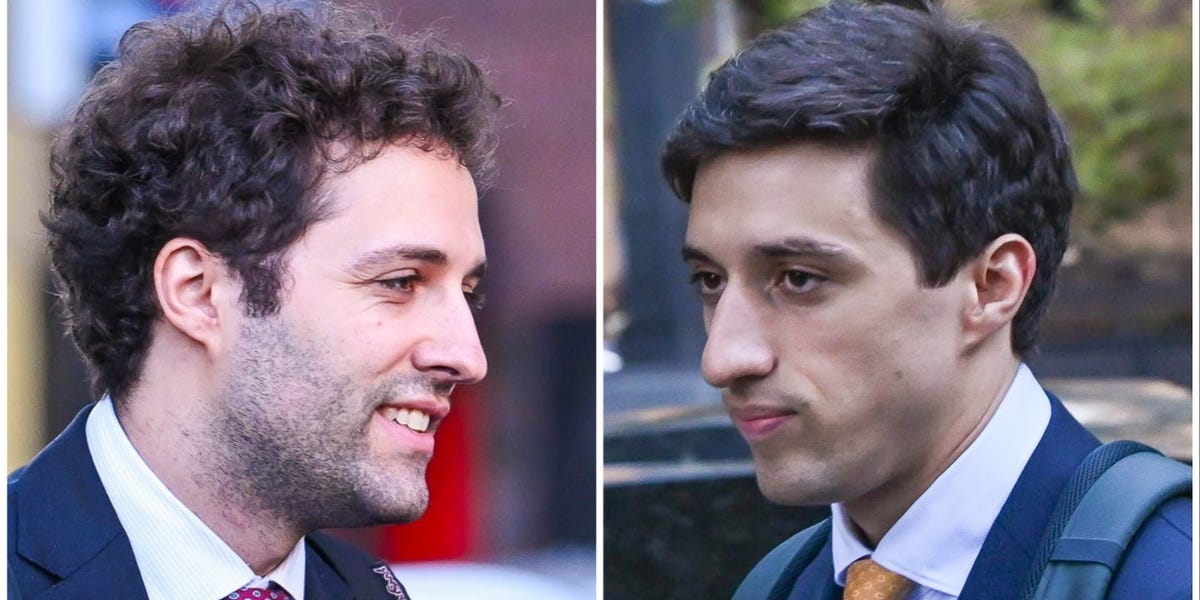A Manhattan jury was asked to continue its deliberations Friday afternoon after revealing it was “struggling” to reach a verdict in the trial of two brothers who pocketed $25 million in cryptocurrency in a 12-second transaction that the federal government says was fraudulent.
The tired-looking panel of five men and seven women was sent back to the jury room at 3:30 p.m. and ordered to continue deliberating the fate of James and Anton Peraire-Bueno.
The MIT-educated brothers, both in their 20s, are accused of wire fraud, conspiracy and money laundering. Each of the three charges carries a maximum sentence of 20 years in prison.
“Don’t forget your oath,” U.S. District Court Judge Jessica GL Clarke told jurors on their third day of deliberations. Several jurors’ faces fell when the judge informed them that a dinner menu would be available in the jury room, emphasizing that their work was not yet finished.
The jury heard three weeks of highly complex testimony describing the brothers’ extremely rapid maneuver in April 2023, which funneled a small fortune into their cryptocurrency wallets.
In charging the brothers with fraud, prosecutors say the brothers lured and then deceived a trio of traders on the Ethereum blockchain.
To complicate matters: the transaction was entirely carried out by “robots”, a pre-programmed code that acted in a few milliseconds. The targets of the Peraire-Buenos robots? They were also robots.
Defense attorneys told jurors that the brothers’ complex robot-on-robot maneuver was a wildly successful “business strategy,” fair play in the harsh, self-regulated world of Ethereum.
Prosecutors said the hijacking only worked because the brothers repeatedly made false statements — essentially programming their robots to lie. Under federal law, a defendant is guilty of wire fraud if he or she intentionally uses false statements to deceive another party to obtain money or property.
Earlier juror notes released Friday showed the panel was struggling to understand the standard of proof for determining the defendants’ state of mind at the time the maneuver was carried out.
In a victory for the government, the judge told jurors they did not need to specifically find that the brothers knew their actions were illegal — only that they intentionally intended to deceive.
The jury also asked Friday for additional clarification on the meaning of the phrase “guilt beyond a reasonable doubt.” The judge said that this expression means that the evidence is so convincing that a reasonable person would not hesitate to rely on it and act accordingly.
On Thursday, jurors informed the court that they would be prepared to work until 7:30 p.m. Friday, if necessary.










